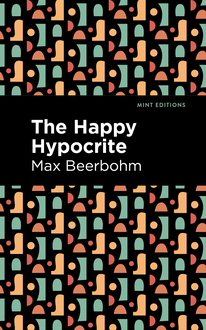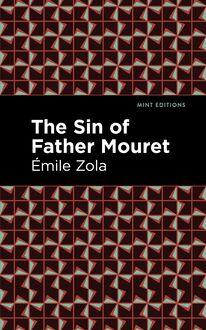-
 Univers
Univers
-
 Ebooks
Ebooks
-
 Livres audio
Livres audio
-
 Presse
Presse
-
 Podcasts
Podcasts
-
 BD
BD
-
 Documents
Documents
-
- Cours
- Révisions
- Ressources pédagogiques
- Sciences de l’éducation
- Manuels scolaires
- Langues
- Travaux de classe
- Annales de BEP
- Etudes supérieures
- Maternelle et primaire
- Fiches de lecture
- Orientation scolaire
- Méthodologie
- Corrigés de devoir
- Annales d’examens et concours
- Annales du bac
- Annales du brevet
- Rapports de stage
La lecture à portée de main
Vous pourrez modifier la taille du texte de cet ouvrage
Découvre YouScribe en t'inscrivant gratuitement
Je m'inscrisDécouvre YouScribe en t'inscrivant gratuitement
Je m'inscrisEn savoir plus
Vous pourrez modifier la taille du texte de cet ouvrage
En savoir plus

Description
Sujets
Informations
| Publié par | Mint Editions |
| Date de parution | 11 mai 2021 |
| Nombre de lectures | 0 |
| EAN13 | 9781513288536 |
| Langue | English |
Informations légales : prix de location à la page 0,0550€. Cette information est donnée uniquement à titre indicatif conformément à la législation en vigueur.
Extrait
The Real Adventure
Henry Kitchell Webster
The Real Adventure was first published in 1916.
This edition published by Mint Editions 2021.
ISBN 9781513283517 | E-ISBN 9781513288536
Published by Mint Editions®
minteditionbooks.com
Publishing Director: Jennifer Newens
Design & Production: Rachel Lopez Metzger
Project Manager: Micaela Clark
Typesetting: Westchester Publishing Services
C ONTENTS B OOK I. T HE G REAT I LLUSION I. A P OINT OF D EPARTURE II. B EGINNING AN A DVENTURE III. F REDERICA ’ S P LAN AND W HAT H APPENED TO I T IV. R OSALIND S TANTON D OESN ’ T D ISAPPEAR V. T HE S ECOND E NCOUNTER VI. T HE B IG H ORSE VII. H OW I T S TRUCK P ORTIA VIII. R ODNEY ’ S E XPERIMENT IX. A FTER B REAKFAST B OOK II. L OVE AND THE W ORLD I. T HE P RINCESS C INDERELLA II. T HE F IRST Q UESTION AND AN A NSWER TO I T III. W HERE D ID R OSE C OME I N IV. L ONG C IRCUITS AND S HORT V. R ODNEY S MILED VI. T HE D AMASCUS R OAD VII. H OW THE P ATTERN W AS C UT VIII. A B IRTHDAY IX. A D EFEAT X. T HE D OOR T HAT W AS TO O PEN XI. A N I LLUSTRATION XII. W HAT H ARRIET D ID XIII. F ATE P LAYS A J OKE XIV. T HE D AM G IVES W AY XV. T HE O NLY R EMEDY XVI. R OSE O PENS THE D OOR B OOK III. T HE W ORLD A LONE I. T HE L ENGTH OF A T HOUSAND Y ARDS II. T HE E VENING AND THE M ORNING W ERE THE F IRST D AY III. R OSE K EEPS THE P ATH IV. T HE G IRL W ITH THE B AD V OICE V. M RS . G OLDSMITH ’ S T ASTE VI. A B USINESS P ROPOSITION VII. T HE E ND OF A F IXED I DEA VIII. S UCCESS — AND A R ECOGNITION IX. T HE M AN AND THE D IRECTOR X. T HE V OICE OF THE W ORLD XI. T HE S HORT C IRCUIT A GAIN XII. “I’ M A LL A LONE ” XIII. F REDERICA ’ S P ARADOX XIV. T HE M IRY W AY XV. I N F LIGHT XVI. A NTI -C LIMAX XVII. T HE E ND OF THE T OUR XVIII. T HE C ONQUEST OF C ENTROPOLIS B OOK IV. T HE R EAL A DVENTURE I. T HE T UNE C HANGES II. A B ROKEN P ARALLEL III. F RIENDS IV. C OULEUR - DE - ROSE V. T HE B EGINNING
BOOK I
THE GREAT ILLUSION
I
A P OINT OF D EPARTURE
“Indeed,” continued the professor, glancing demurely down at his notes, “if one were the editor of a column of—er advice to young girls, such as I believe is to be found, along with the household hints and the dress patterns, on the ladies’ page of most of our newspapers—if one were the editor of such a column, he might crystallize the remarks I have been making this morning into a warning—never marry a man with a passion for principles.”
It drew a laugh, of course. Professorial jokes never miss fire. But the girl didn’t laugh. She came to with a start—she had been staring out the window—and wrote, apparently, the fool thing down in her note-book. It was the only note she had made in thirty-five minutes.
All of his brilliant exposition of the paradox of Rousseau and Robespierre (he was giving a course on the French Revolution), the strange and yet inevitable fact that the softest, most sentimental, rose-scented religion ever invented, should have produced, through its most thoroughly infatuated disciple, the ghastliest reign of terror that ever shocked the world; his masterly character study of the “sea-green incorruptible,” too humane to swat a fly, yet capable of sending half of France to the guillotine in order that the half that was left might believe unanimously in the rights of man; all this the girl had let go by unheard, in favor, apparently, of the drone of a street piano, which came in through the open window on the prematurely warm March wind. Of all his philosophizing, there was not a pen-track to mar the virginity of the page she had opened her note-book to when the lecture began.
And then, with a perfectly serious face, she had written down his silly little joke about advice to young girls.
There was no reason in the world why she should be The Girl. There were fifteen or twenty of them in the class along with about as many men. And, partly because there was no reason for his paying any special attention to her, it annoyed him frightfully that he did.
She was good-looking, of course—a rather boyishly splendid young creature of somewhere about twenty, with a heap of hair that had, in spite of its rather commonplace chestnut color, a sort of electric vitality about it. She was slightly prognathous, which gave a humorous lift to her otherwise sensible nose. She had good straight-looking, expressive eyes, too, and a big, wide, really beautiful mouth, with square white teeth in it, which, when she smiled or yawned—and she yawned more luxuriously than any girl who had ever sat in his classes—exerted a sort of hypnotic effect on him. All that, however, left unexplained the quality she had of making you, whatever she did, irresistibly aware of her. And, conversely, unaware of every one else about her. A bit of campus slang occurred to him as quite literally applicable to her. She had all the rest of them faded.
It wasn’t, apparently, an effect she tried for. He had to acquit her of that. Not even, perhaps, one that she was conscious of. When she came early to one of his lectures—it didn’t happen often—the men, showed a practical unanimity in trying to choose seats near by, or at least where they could see her. But while this didn’t distress her at all—they were welcome to look if they liked—she struck no attitudes for their benefit. A sort of breezy indifference—he selected that phrase finally as the best description of her attitude toward all of them, including himself. When she was late, as she usually was, she slid unostentatiously into the back row—if possible at the end where she could look out the window. But for three minutes after she had come in, he knew he might as well have stopped his lecture and begun reciting the Greek alphabet. She was, in the professor’s mind, the final argument against coeducation. Her name was Rosalind Stanton, but his impression was that they called her Rose.
The bell rang out in the corridor. He dismissed the class and began stacking up his notes. Then:
“Miss Stanton,” he said.
She detached herself from the stream that was moving toward the door, and with a good-humored look of inquiry about her very expressive eyebrows, came toward him. And then he wished he hadn’t called her. She had spoiled his lecture—a perfectly good lecture—and his impulse had been to remonstrate with her. But the moment he saw her coming, he knew he wasn’t going to be able to do it. It wasn’t her fault that her teeth had hypnotized him, and her hair tangled his ideas.
“This is an idiotic question,” he said, as she paused before his desk, “but did you get anything at all out of my lecture except my bit of facetious advice to young girls about to marry?”
She flushed a little (a girl like that hadn’t any right to flush; it ought to be against the college regulations), drew her brows together in a puzzled sort of way, and then, with her wide, boyish, good-humored mouth, she smiled.
“I didn’t know it was facetious,” she said. “It struck me as pretty good. But—I’m awfully sorry if you thought me inattentive. You see, mother brought us all up on the Social Contract and The Age of Reason, things like that, and I didn’t put it down because…”
“I see,” he said. “I beg your pardon.”
She smiled, cheerfully begged his and assured him she’d try to do better.
Another girl who’d been waiting to speak to the professor, perceiving that their conversation was at an end, came and stood beside her at the desk—a scrawny girl with an eager voice, and a question she wanted to ask about Robespierre; and for some reason or other, Rosalind Stanton’s valedictory smile seemed to include a consciousness of this other girl—a consciousness of a contrast. It might not have been any more than that, but somehow, it left the professor feeling that he had given himself away.
He was particularly polite to the other girl, because his impulse was to act so very differently.
There is nothing cloistral about the University of Chicago except its architecture. The presence of a fat abbot, or a lady prioress in the corridor outside the recitation room would have fitted in admirably with the look of the warm gray walls and the carven pointed arches of the window and door casements, the blackened oak of the doors themselves.
On the other hand, the appearance of the person whom Rose found waiting for her out there, afforded the piquant effect of contrast. Or would have done so, had the spectacle of him in that very occupation not been so familiar.
He was a varsity half-back, a gigantic blond young man in a blue serge suit. He said, “Hello, Rose,” and she said, “Hello, Harry.” And he heaved himself erect from the wall he had been leaning against and reached out an immense hand to absorb the little stack of note-books she carried. She ignored the gesture, and when he asked for them said she’d carry them herself. There was a sort of strategic advantage in having your own note-books under your own arm—a fact which no one appreciated better than the half-back himself.
He looked a little hurt. “Sore about something?” he asked.
She smiled widely and said, “Not a bit.”
“I didn’t mean at me necessarily,” he explained, and referred to the fact that the professor had detained her after he had dismissed the class. “What’d he try to do—call you down?”
There was indignation in the young man’s voice—a hint of the protector aroused—of possible retribution.
She grinned again. “Oh, you needn’t go back and kill him,” she said.
He blushed to the ears. “I’m sorry,” he observed stiltedly, “if I appear ridiculous.” But she went on smiling.
“Don’t you care,” she said. “Everybody’s ridiculous in March. You’re ridiculous, I’m ridiculous, he”—she nodded along the corridor—“he’s plumb ridiculous.”
He wasn’t wholly appeased. It was rather with an air of resignation that he held the door for her to go out by. They strolled along in silence until they rounded the corner of the building. Here, ceremoniously, he fell back, walked around behind her and came up on the outside. She glanced up and
-
 Univers
Univers
-
 Ebooks
Ebooks
-
 Livres audio
Livres audio
-
 Presse
Presse
-
 Podcasts
Podcasts
-
 BD
BD
-
 Documents
Documents
-
Jeunesse
-
Littérature
-
Ressources professionnelles
-
Santé et bien-être
-
Savoirs
-
Education
-
Loisirs et hobbies
-
Art, musique et cinéma
-
Actualité et débat de société
-
Jeunesse
-
Littérature
-
Ressources professionnelles
-
Santé et bien-être
-
Savoirs
-
Education
-
Loisirs et hobbies
-
Art, musique et cinéma
-
Actualité et débat de société
-
Actualités
-
Lifestyle
-
Presse jeunesse
-
Presse professionnelle
-
Pratique
-
Presse sportive
-
Presse internationale
-
Culture & Médias
-
Action et Aventures
-
Science-fiction et Fantasy
-
Société
-
Jeunesse
-
Littérature
-
Ressources professionnelles
-
Santé et bien-être
-
Savoirs
-
Education
-
Loisirs et hobbies
-
Art, musique et cinéma
-
Actualité et débat de société
- Cours
- Révisions
- Ressources pédagogiques
- Sciences de l’éducation
- Manuels scolaires
- Langues
- Travaux de classe
- Annales de BEP
- Etudes supérieures
- Maternelle et primaire
- Fiches de lecture
- Orientation scolaire
- Méthodologie
- Corrigés de devoir
- Annales d’examens et concours
- Annales du bac
- Annales du brevet
- Rapports de stage
















